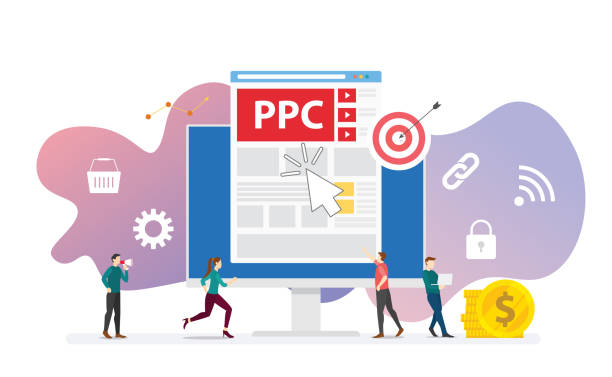Mastering Pay-Per-Click Advertising: A Guide for Beginners
 Shivanshi Singh
Shivanshi Singh
Pay-Per-Click (PPC) advertising is one of the most effective ways to drive targeted traffic to your website and generate leads. However, if you're new to this form of online marketing, it can seem daunting. This guide is designed to help beginners understand the basics of PPC advertising and how to create successful campaigns.
What is Pay-Per-Click Advertising?
PPC advertising is a digital marketing model where advertisers pay a fee each time their ad is clicked. Essentially, it’s a way of buying visits to your site rather than attempting to “earn” those visits organically. Search engine advertising, like Google Ads, is the most popular form of PPC.
How Does PPC Work?
1. Bidding on Keywords
In PPC advertising, advertisers bid on keywords that are relevant to their business. When a user searches for one of these keywords, the search engine displays the ads that have been bid on, along with the organic search results.
2. Ad Auction
The search engine conducts an auction every time someone performs a search. The auction determines which ads are shown and in what order. The winning ad is determined by factors like the bid amount, ad quality, and relevance to the search query.
3. Payment for Clicks
Advertisers only pay when someone clicks on their ad. The cost per click (CPC) can vary depending on the competitiveness of the keyword, the ad's quality, and other factors.
Setting Up a PPC Campaign
1. Define Your Goals
Before starting a PPC campaign, it's crucial to define your objectives. Are you looking to increase website traffic, generate leads, or boost sales? Your goals will influence every aspect of your campaign, from keyword selection to ad copy.
2. Choose the Right Platform
Google Ads is the most widely used PPC platform, but other platforms like Bing Ads, Facebook Ads, and LinkedIn Ads can also be effective, depending on your target audience. Choose a platform that aligns with your business goals and audience.
3. Keyword Research
Keyword research is the foundation of a successful PPC campaign. Use tools like Google Keyword Planner to identify relevant keywords that your target audience is likely to search for. Focus on both broad and long-tail keywords to cover a wide range of search queries.
4. Create Compelling Ad Copy
Your ad copy should be clear, concise, and compelling. It should include your main keyword, a strong call-to-action (CTA), and a unique selling proposition (USP). The ad should entice users to click and visit your landing page.
5. Design a Landing Page
A well-designed landing page is crucial for converting clicks into leads or sales. The landing page should be relevant to the ad, easy to navigate, and optimized for conversions. Ensure that the page loads quickly and is mobile-friendly.
6. Set a Budget
Determine how much you are willing to spend on your PPC campaign. Most platforms allow you to set a daily or monthly budget. Start with a small budget, monitor the performance, and scale up as you see positive results.
Optimizing Your PPC Campaign
1. Monitor and Analyze Performance
Regularly monitor your PPC campaign's performance using metrics like click-through rate (CTR), cost per click (CPC), conversion rate, and return on ad spend (ROAS). Use these insights to make informed decisions about optimizing your campaign.
2. A/B Testing
A/B testing involves creating multiple versions of your ads or landing pages to see which one performs better. Test different headlines, ad copy, images, and CTAs to identify what resonates best with your audience.
3. Adjust Bids and Budgets
If certain keywords or ads are performing well, consider increasing your bids or budget for those elements. Conversely, reduce bids or pause campaigns that are underperforming to optimize your spending.
4. Focus on Quality Score
Quality Score is a metric used by Google Ads to determine the relevance and quality of your ads. A higher Quality Score can lead to lower costs and better ad positions. To improve your Quality Score, focus on creating relevant ads, optimizing your landing pages, and selecting the right keywords.
Common Mistakes to Avoid
1. Neglecting Negative Keywords
Negative keywords prevent your ad from appearing for irrelevant searches. Neglecting to use negative keywords can lead to wasted ad spend on clicks that are unlikely to convert.
2. Ignoring Mobile Users
With the increasing number of mobile users, it's essential to ensure that your ads and landing pages are mobile-friendly. Ignoring mobile optimization can result in missed opportunities and lower conversion rates.
3. Overlooking Conversion Tracking
Without proper conversion tracking, it's impossible to determine the effectiveness of your PPC campaign. Set up conversion tracking to measure the success of your campaign and make data-driven decisions.
Conclusion
PPC advertising can be a powerful tool for driving targeted traffic and generating leads. By understanding the basics and implementing best practices, beginners can create successful PPC campaigns that deliver measurable results. Digital marketing training in Delhi, Noida, Lucknow, and other locations in India can provide the necessary knowledge and skills to master PPC advertising. Remember to continuously monitor, test, and optimize your campaigns to maximize your return on investment.
Subscribe to my newsletter
Read articles from Shivanshi Singh directly inside your inbox. Subscribe to the newsletter, and don't miss out.
Written by

Shivanshi Singh
Shivanshi Singh
I am a Digital Marketer and Content Marketing Specialist, I enjoy technical and non-technical writing. I enjoy learning something new. My passion and urge is to gain new insights into lifestyle, Education, and technology.